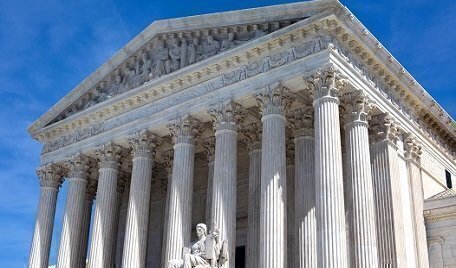Are we becoming a nation of vigilantes? A recent opinion article by two legal scholars suggested the answer is yes.
 The authors were reacting to Texas’ six-week abortion ban, which the U.S. Supreme Court allowed to take effect on September 1, as well as other states’ actions in the past few months.
The authors were reacting to Texas’ six-week abortion ban, which the U.S. Supreme Court allowed to take effect on September 1, as well as other states’ actions in the past few months.
The Texas law has no state enforcement responsibility, which is the traditional way laws are enforced. Instead, the law authorizes private citizens to enforce the ban by suing those who perform abortions and anyone who aids or abets an abortion, for example, your neighbor, a family member, even a cab driver. If the lawsuit is successful in showing the ban was violated, the person suing may collect $10,000.
As U.S. Attorney General Merrick Garland and Chief Justice John Roberts Jr. have said, the citizen enforcement provision appears to be designed to prevent judicial review of the law’s constitutionality. Texas lawmakers had reason to be concerned. A number of federal courts have struck down these pre-viability abortion bans as violations of U.S. Supreme Court precedents protecting a woman’s right to choose an abortion.
Immediately after the Texas law took effect, some legal scholars, historians and others searched for an analogue in our past to what many call the law’s vigilante approach to enforcement. They didn’t need to look hard.
The pre-Civil War Fugitive Slave Acts were mentioned quickly and frequently. And the Supreme Court played a role there as well.
Congress enacted the first Fugitive Slave Act in 1793. The law authorized slave owners and their “agents” to search for escaped slaves within the borders of free states. The law imposed a $500 penalty on anyone who aided and abetted the escapee.
At the time, the Constitution included a now obsolete “Fugitive Slave Clause” in Article IV, Section 2, Clause 3. The clause stated that “No person held to service or labour in one state under the laws thereof escaping into another shall… be discharged from service or labour….”
Many northern states had abolished slavery and most refused to enforce the 1793 law. Some passed so-called “Personal Liberty” laws that protected freed slaves and gave accused escapees the right to a jury trial. Pennsylvania’s personal liberty law was challenged in a case that reached the Supreme Court in 1842.
A Marylander, Edward Prigg, was convicted of kidnapping a suspected slave in Pennsylvania. In the case Prigg v. Pennsylvania, the Supreme Court upheld the Fugitive Slave Act and also established the supremacy of federal law.
But by the mid-1800s, the act was going largely unenforced. Congress stepped in again at the behest of southern states and enacted the Fugitive Slave Act of 1850. This version required citizens to aid in the capture of escaped slaves, denied suspected escapees the prior act’s right to a jury trial, and increased to $1,000 the penalty for aiding an escapee.
Like the 1793 law, the second law was barely enforced in the North. But Congress did not repeal both laws until 1864.
The two legal scholars who warned about increasing vigilantism from the Texas type of private enforcement of laws pointed to such recent examples as Tennessee’s law authorizing teachers to sue schools allowing transgender students to use bathrooms that match their gender identity. Florida law allows students to sue schools that permit transgender girls to participate in girls’ team sports. And the scholars noted pending bills in several states authorizing parents to sue schools or outside speakers who discuss critical race theory.
Chief Justice Roberts echoed this concern in a more general way when he dissented from his court’s September 1 order declining to review the legal questions raised by the Texas law and allowing it to go into effect. He wrote that the consequences of approving the Texas’ law, “both in this particular case and as a model for action in other areas, counsel at least preliminary judicial consideration before the program devised by the State takes effect.”
Attorney General Garland was more direct when announcing that the United States was suing Texas to challenge the constitutionality of the state law:
“This kind of scheme to nullify the Constitution of the United States is one that all Americans – whatever their politics or party – should fear. If it prevails, it may become a model for action in other areas, by other states, and with respect to other constitutional rights and judicial precedents.
“Nor need one think long or hard to realize the damage that would be done to our society if states were allowed to implement laws that empower any private individual to infringe on another’s constitutionally protected rights in this way.”
The Justice Department’s challenge to the Texas law will undoubtedly reach the Supreme Court, perhaps sooner than many realize. When it does, the Supreme Court will have to face the “consequences” of which the Chief Justice warned.
Marcia Coyle is a regular contributor to Constitution Daily and the Chief Washington Correspondent for The National Law Journal, covering the Supreme Court for more than 20 years.







